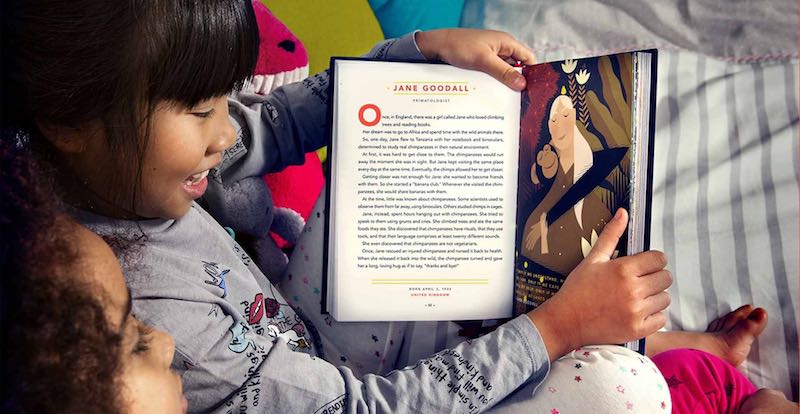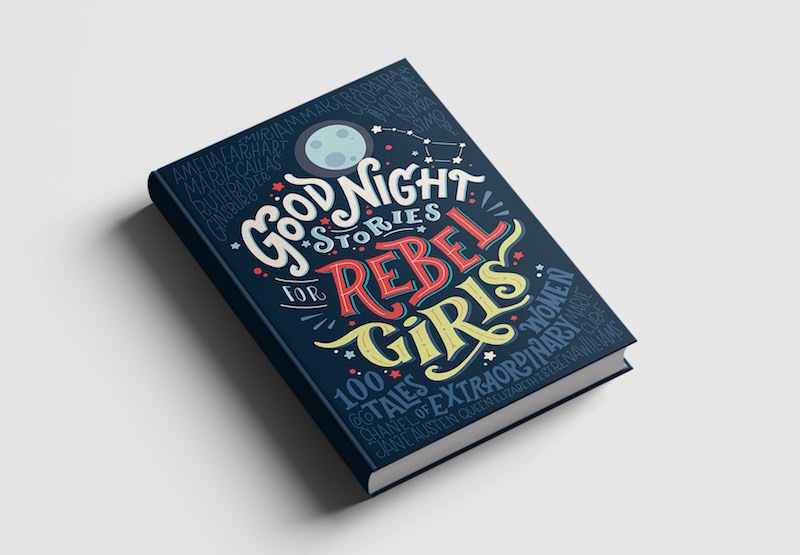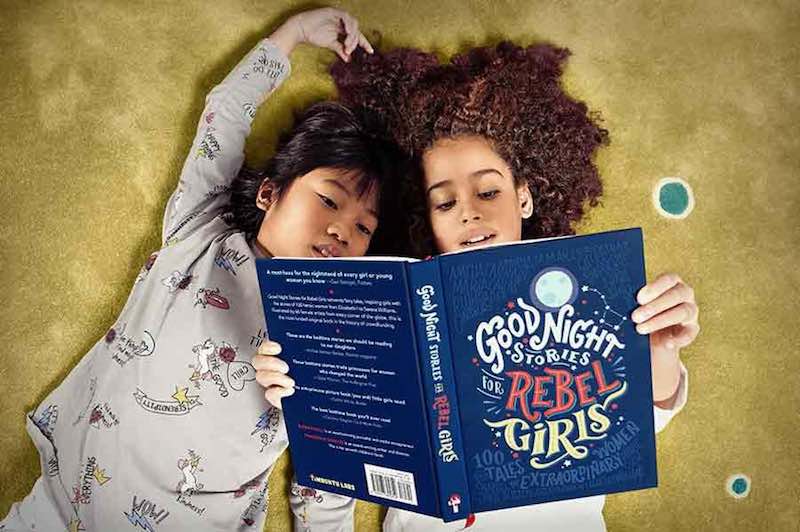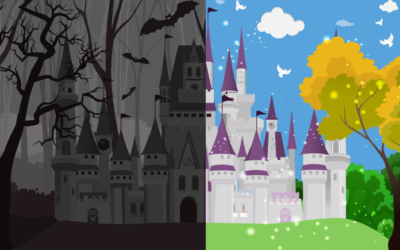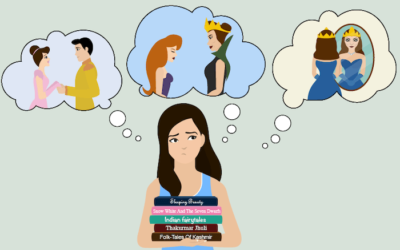Why You Should Read “Good Night Stories For Rebel Girls” Instead Of Fairy Tales To Your Children

Deepika Asthana
March 06, 2018
What if Sleeping Beauty did not wait around to be kissed by a prince and instead created a vaccine? What if Cinderella did not bother about a deadline and traded equity markets across the globe, eighteen hours a day? What if our little girls dream of walking on Mars or winning at the Olympics or even scaling Mount Everest? Are we not doing a great disservice to them by planting a prince charming in their dreams?
However, over centuries there have been women brave enough to stand tall and fight for their cause. The aptly titled Good Night Stories For Rebel Girls had me fall in love with it. When I first heard of it, I thought that it seemed like a strange book to read to my girls at night. You see, we are naturally programmed to raise our guard when we hear the word “rebel”. However, like you can’t judge a book by its cover, you can’t judge it by its title either.
A remarkable piece of non-fiction, the book is both inspiring and humbling in equal measure. 100 short stories of 100 women from across time, boundaries and nationalities, united by their singular commitment to their dreams in the face of adversity. Each story is written like a fairy tale to make it easier for children to relate to. It’s a wonderful book that teaches young girls that with hard work, perseverance and belief in self, they can achieve just about anything. When I read the book to my girls, I want them to believe that dreams do become a reality.
Brenda Chapman and I share a common grouse: Why do women always have to be portrayed as helpless characters that need to be rescued? As per Good Night Stories For Rebel Girls, on joining Walt Disney Studios, Brenda Chapman soon discovered that she was one of the very few women animators there. “That’s when I realised why princesses in their films were so helpless: They had all been created by men”. However, in order to see the change, one must be the change. That’s when the idea for the film “Brave” germinated. A film that won her an Oscar and a Golden Globe. Princess Merida of “Brave” is far from a helpless damsel in distress. She is strong, independent and brave.
Simone Biles is a girl who can fly. One of the greatest gymnasts in American history, she won five medals at the Rio Olympics, four of them gold!
One day, a journalist asked her, “What about the goal of winning a gold medal?”
“A medal can’t be a goal”, Simone replied smiling. “It’s like my mom always says: “If doing your best means you come out on top, that’s awesome. If it means that you finish fourth, that’s awesome too.”
However, she has demonstrated strength not only on the bars but also as a person. Earlier this year she spoke up about the sexual abuse that she experienced at the hands of the former USA gymnastics team doctor Larry Nassar, exemplifying her courage both on and off the floor. Courage to Soar: A Body in Motion, A Life in Balance tells the story of this one woman’s grit and determination.
A century before Hillary Clinton, there was a time when women’s lives were completely dictated by men. It was men who decided what women should or should not wear and what they should or should not do. So they decided that women should not play sports or work or even vote. However, Kate Sheppard, a champion of women’s suffrage, decided that she was not fine with that. She believed that women should have the right to vote and started a petition to mobilise her cause. She garnered so many signatures that it became the longest petition ever presented. And with that, New Zealand became the first country in the world where women gained the right to vote.
However, it was not until 1918 that women (over 30) in Britain were given the right to vote. The word “suffragette” was first used to describe women campaigning for the right to vote in an article in a British newspaper in 1906. Although British women and men had been arguing for both universal and women’s suffrage since the 1860s, the movement for women’s votes gained momentum when Emmeline Pankhurst and her daughters Christabel and Sylvia founded the Women’s Social and Political Union (WSPU) in 1903.
I don’t want my daughters to grow up with the belief that they need to be “rescued”. Throughout history, women have been charting their future. I want my daughters to be inspired by these women. I want them to learn courage from Rani Laxmi Bai, perseverance from Mary Kom, strength and determination from Margaret Thatcher and grit from Rosa Parks.

Writer, investor, crypto enthusiast, nomad, mother of twins and founder of ARNA Write Strategy (a content writing agency). Deepika is a heady mix of all of that and more.
Read her articles here.


